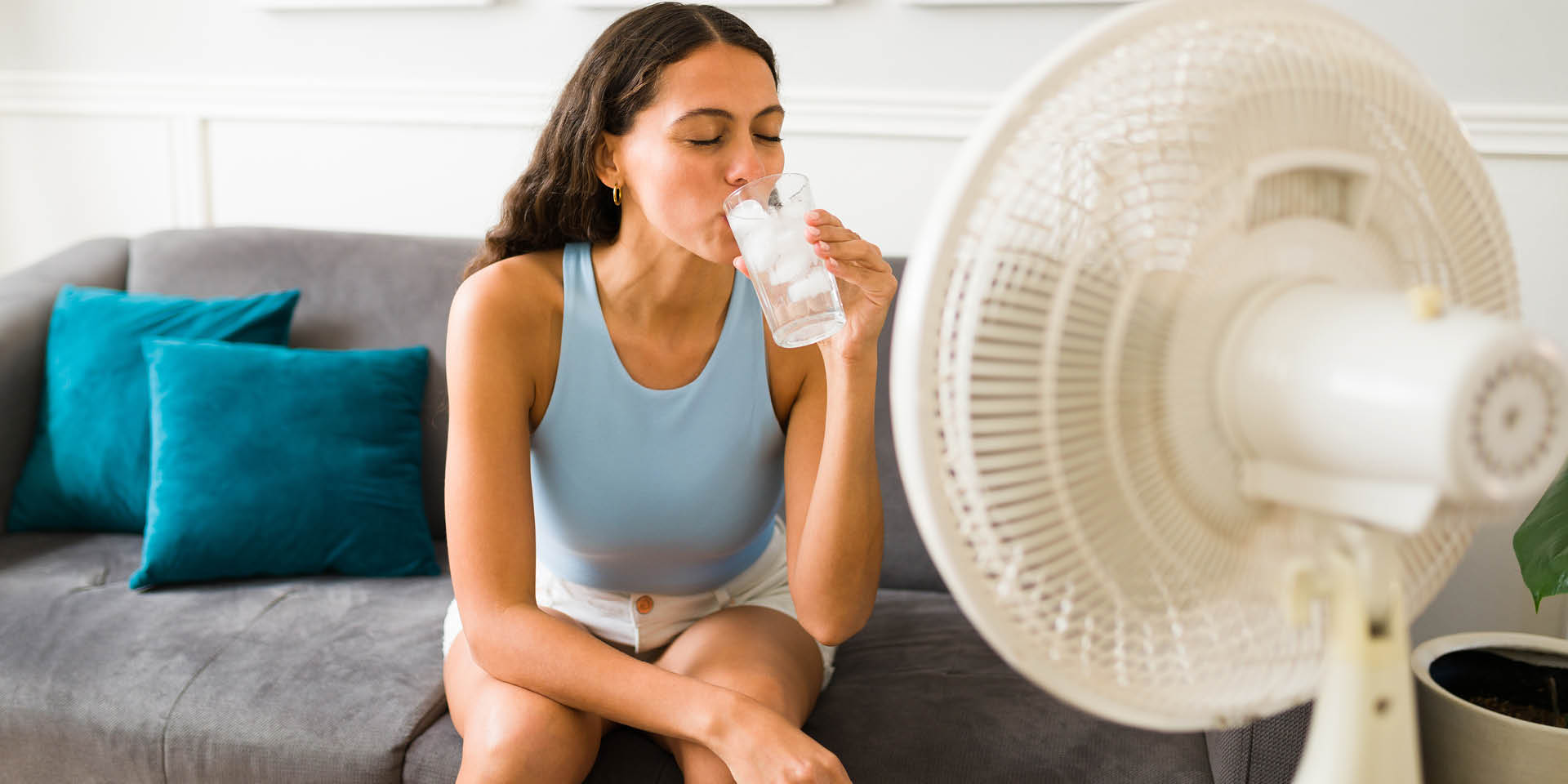During the summer months, you may expect to be hot, but when heat waves occur, spending prolonged time outdoors in the heat can lead to severe heat-related illnesses.
“High temperatures and high humidity can be a dangerous combination,” says Kevin Miller, DO, emergency medicine physician with Doylestown Health. “When your body starts to have trouble regulating its temperature, you can suffer from serious health issues.”
Heat Related Illnesses
There are a number of heat related illnesses with symptoms that range from minor to severe. You can get heat related illnesses from spending too much time outdoors in high temperatures without taking the appropriate precautions.
The most common types of heat related illnesses include:
- Heat rash: Also known as prickly heat, this condition occurs when sweat becomes trapped in the skin. Heat rash causes small clusters of bumps that may be itchy. The condition usually resolves once the skin is cooled but may require medical treatment in severe cases.
- Heat cramps: These painful muscle spasms in the abdomen, back, legs or arms and can be an early symptom of severe heat related illnesses such as heat exhaustion and heat stroke. It is generally caused by dehydration.
- Heat exhaustion: A severe heat related illness that occurs when your body overheats, symptoms of heat exhaustion include:
- Clammy skin
- Dizziness
- Fatigue
- Headache
- Heavy sweating
- Muscle cramps
- Nausea
- Weakness
If you think you have heat exhaustion, you should move to a cool location and rest. If your symptoms don’t improve, you should contact a healthcare provider.
- Heatstroke: This serious condition occurs when your body temperature rises above 104 degrees and is the most serious heat related illness constituting a medical emergency. Left untreated, the condition can cause kidney, heart and brain damage. Some signs of heatstroke include:
- Agitation, confusion or other signs of altered mental state
- Feeling faint or lightheaded
- Flushed, red skin
- High body temperature, over 104 degrees
- Racing pulse
- Rapid, shallow breathing
- Nausea and vomiting
- Severe headache
“Heatstroke is a serious illness that can have long-term effects on your body. If you or someone you know have symptoms of heatstroke, you should go to a cooler location and seek immediate medical attention or call 911,” says Dr. Miller.
Protect the Very Young and Elderly
Although anyone can have a heat related illness, Dr. Miller says the very young and elderly are most susceptible. He says that while athletes are physically fit and healthy, they should take precautions in the heat.
Dr. Miller stresses the importance of everyone knowing the signs and symptoms of heat-related illnesses like heat stroke and heat exhaustion. “Knowing the symptoms of a heat-related illness could make a difference between life or death for you or a loved one,” he says.
Prevent Heat Related Illnesses
The good news is that in most cases, you can prevent heat-related illnesses. When the temperatures rise, it’s important that you do what you can to stay cool. Dr. Miller suggests:
Meet the Provider

Kevin Miller, DO is a board-certified emergency medicine physician with Doylestown Health. He believes in patient-centered care.
About Doylestown Health
Doylestown Health is a comprehensive healthcare system of inpatient, outpatient, and wellness education services connected to meet the health needs of the local and regional community. The flagship of Doylestown Health is Doylestown Hospital, a not-for-profit, community teaching hospital with 245 beds and a medical staff of more than 600 providers who deliver the highest quality care in over 50 specialties. Renowned locally, regionally, and nationally, Doylestown Hospital provides superior healthcare and offers advanced surgical procedures, innovative medical treatments, and comprehensive specialty services. Serving Bucks County for over 100 years, Doylestown Hospital is proud to educate and train the next generation of physicians through its family medicine residency program. Ranked as one of the World’s Best Hospitals by Newsweek and 9th in Pennsylvania, Doylestown Hospital is distinguished in both infection prevention and patient experience. Doylestown Hospital is the only hospital in Pennsylvania to achieve 18 consecutive ‘A’ grades for patient safety from Leapfrog Hospital Safety Grade. Learn more at doylestownhealth.org.
